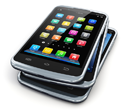
By Anthony Kaylin, courtesy of SBAM Approved Partner ASE
It seems on the face of it a simple request by the FBI: For Apple to allow FBI investigators to access the iPhone used by Syed Rizwan Farook, one of the alleged shooters in the December mass murder in San Bernardino, California. Bureau officials say that encrypted data in Mr. Farook’s phone as well as its GPS system may hold vital clues about where Farook and his wife, Tashfeen Malik, traveled in the 18 minutes after the shootings, and about whom they might have contacted beforehand. To the FBI, national security is at stake.
At first blush, it seems like a simple and reasonable request. But digging deeper into the situation, it is not as simple or reasonable as it seems. Apple claims that the FBI wants it to violate due process rights. Further, Apple argues that forcing it to write new software, which it would have to do to comply with the FBI’s request, would violate its First Amendment free speech right. Software writing and coding has been ruled by some courts to be protected speech. Moreover, Apple fears that the FBI will use the new software to give itself a permanent way to bypass iPhone password protection for law enforcement in the U.S., or even for spy agencies of other countries for other phones.
In particular, this request could cause problems for Apple in China, whose government has always wanted more control over encryption and encrypted phones. Moreover, China is also Apple’s second largest consumer market for, and the primary manufacturer of, its iPhones.
Other technology companies support Apple, stating essentially that the government is trying to create a permanent “back door” that would allow investigators or spies to circumvent encryption or password protection.
Support for Apple has come from some unlikely sources. For example, the Black Lives Matter movement and other civil rights advocates support Apple. The BLM coalition wrote the following in a letter supporting Apple:
. . . [o]ne need only look to the days of J. Edgar Hoover and wiretapping of Rev. Martin Luther King, Jr. to recognize the FBI has not always respected the right to privacy for groups it did not agree with . . . Many of us, as civil rights advocates, have become targets of government surveillance for no reason beyond our advocacy or provision of social services for the underrepresented.
However, the All Writs Act (28 U.S.C. § 1651) gives the court the power “to order a third party to provide non-burdensome technical assistance to law enforcement officials” as long as a valid warrant is involved.
The question is how “non-burdensome” it will be for Apple to provide the “backdoor” for this phone. Apple has stated in filings that it would not be so technically burdensome to do; but the issue that Apple raises is that by creating this “backdoor,” it would create a serious security environment issue for the company:
Given the millions of iPhones in use and the value of the data on them, criminals, terrorists, and hackers will no doubt view the code as a major prize and can be expected to go to considerable lengths to steal it, risking the security, safety, and privacy of customers whose lives are chronicled on their phones.
Given that many employees use iPhones, corporate espionage stakes would be higher, subject to incursions by rogue employees, unions, and anyone else domestic or foreign who wants access to an employer’s confidential data. And just to muddy the waters, many other cell phones do not have encryption or have only minimal encryption. Curiously, the NSA has been silent in this fight. It has been speculated that the NSA can already unlock an iPhone, and the FBI is pursuing this matter to win some points in its intramural rivalry with its fellow federal security agency.
How can this fight impact other employers? First, if the shooters had (hypothetically) used employer phones, it is likely that the employer would own all data in the phone, assuming it had an appropriate cell phone policy in place. The employer would then have to provide the data to the FBI if the FBI subpoenaed it. So if this were the case for Apple, the shooters were employees of Apple and used company phones to conduct business for the shooting, could Apple prevent access to the iPhone? The bet is that Apple would be consistent and fight FBI efforts, because to Apple, it implies that the employer must be an actor for the government in these, or other currently unforeseen, circumstances. But unfortunately for Apple, it would probably lose the fight.
However this court battle turns out, it will be a lengthy one. A hearing will be held March 22.
HR needs to review its cell phone and electronic devices policy to ensure that it complies with legal requirements if this situation were to occur. And the likelihood of it occurring may seem remote; but it is growing every day.